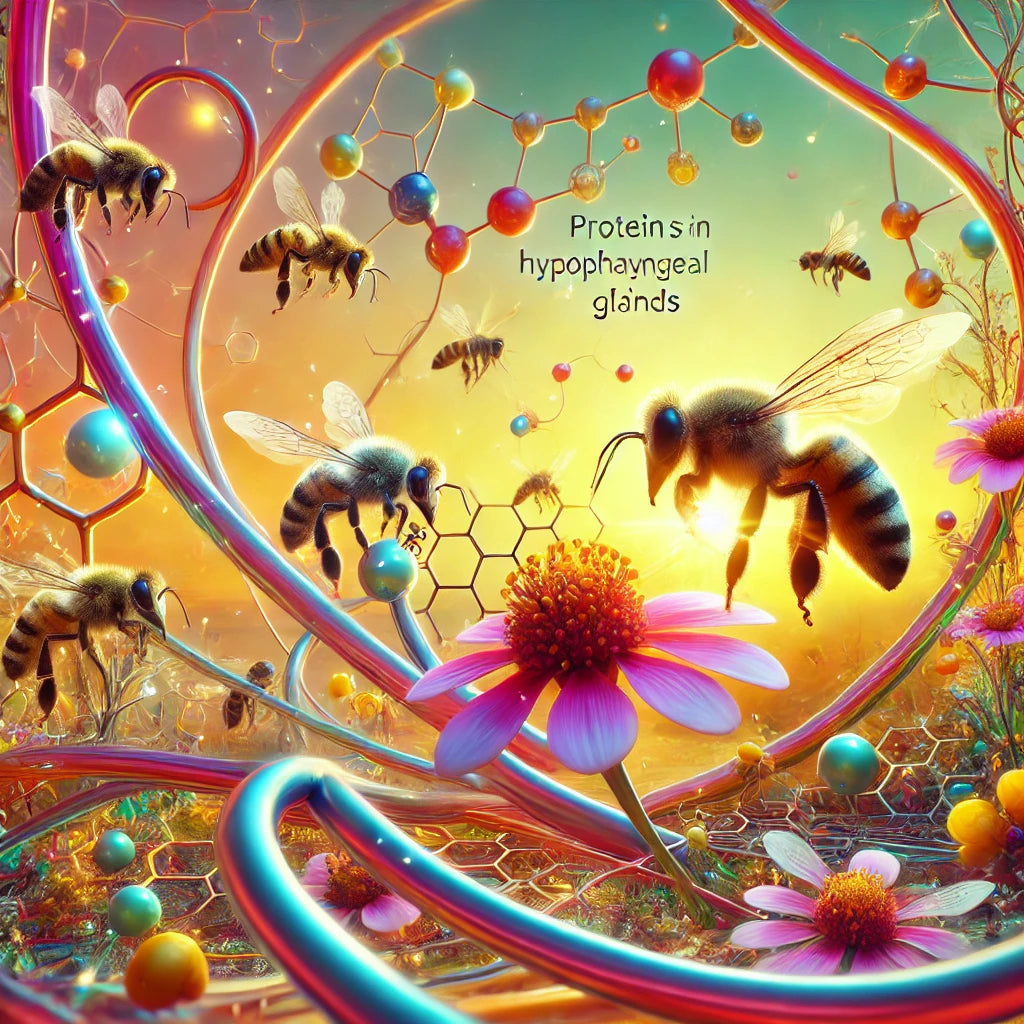Bee glands are essential for various functions within the colony, especially the hypopharyngeal glands that are responsible for producing royal jelly and other essential nutrients for larvae and the queen. Understanding how these glands work is crucial for beekeepers and enthusiasts, particularly when faced with reactions such as swollen glands from a bee sting. Let’s delve into how bee stings can affect both bees and humans, and the role that proteins play in bee gland functionality.
What are Hypopharyngeal Glands?
In worker bees, hypopharyngeal glands are located in the head and play a vital role in the early stages of their life cycle. These glands produce royal jelly—a protein-rich secretion that nourishes the larvae and the queen bee. The amount of protein consumed by the bees directly affects the productivity of these glands, making nutrition a key element in maintaining hive health. During times when there is a scarcity of pollen or protein sources, the glands shrink, which reduces the bees’ ability to care for their brood. Benefits of bees such as their ability to sustain agriculture are tied closely to these protein functions.
Why Bee Stings Cause Swollen Glands in Humans
For humans, the experience of being stung by a bee can lead to localized swelling and sometimes more widespread symptoms. A bee sting injects venom, which can cause the body's immune system to react. In some cases, people experience swollen glands as the immune system responds to the bee venom, which contains proteins like melittin that trigger an inflammatory reaction. The body’s lymph nodes, or "glands," may swell as part of the immune response, attempting to filter out the venom.
The severity of the reaction can vary from person to person. While mild reactions are more common, severe allergic reactions like anaphylaxis can occur in rare cases, which makes it crucial to monitor symptoms after a sting.
Importance of Protein for Hypopharyngeal Glands in Bees
Protein is fundamental for the proper functioning of a bee's hypopharyngeal glands. As bees consume protein through pollen, the glands in worker bees expand and become more productive, especially in producing the royal jelly necessary for brood rearing. A deficiency in protein results in reduced gland activity, which can significantly impact the overall health of the hive. Beekeepers often supplement their bees' diet with protein-rich substitutes when pollen is scarce to maintain hive health and productivity.
Using tools such as bee trap attractants can help guide bees to richer pollen sources, ensuring they get the necessary nutrients to maintain strong gland function. This is critical for brood care and the production of the next generation of bees.
Keep Your Bees Healthy with the Right Protein Intake
Both human and bee gland reactions play significant roles in their respective biology. For bees, the proper functioning of the hypopharyngeal glands is essential for the colony’s health, driven by protein intake. For humans, understanding why bee sting swollen glands occur can help manage sting responses effectively. By ensuring that bees receive adequate nutrition, we support not just their gland functionality but also their ability to maintain a thriving colony.
Support your bees' gland health by ensuring they have access to the right nutrition. Visit SwarmCommander for tools like bee trap attractants and other hive management products to maintain a thriving and productive colony.
Frequently Asked Questions About Bee Glands and Bee Stings
Q1. What is the primary function of the hypopharyngeal glands in bees?
The hypopharyngeal glands produce royal jelly, which nourishes the queen and larvae. The glands rely on adequate protein intake to function efficiently, supporting the hive's overall health.
Q2. How does protein affect a bee's hypopharyngeal glands?
A bee’s protein intake directly influences the productivity of its hypopharyngeal glands. Without enough protein from pollen, the glands shrink, reducing the bees' ability to care for their brood and weakening the colony. Learn more about how to start a bee farm with proper nutrition management.
Q3. Why do swollen glands occur after a bee sting?
Swollen glands can occur after a bee sting as part of the body's immune response to bee venom. The venom contains proteins that can cause an inflammatory reaction, leading to swelling in the lymph nodes.
Q4. How can I manage bee sting reactions?
If you experience mild swelling after a bee sting, applying ice and taking antihistamines can help reduce symptoms. For more severe reactions, such as anaphylaxis, immediate medical attention is necessary.
Q5. Why are honey bees so important to agriculture?
Honey bees are crucial for pollinating crops, which supports global food production. Why are honeybees so vital to agriculture? They contribute to biodiversity and are essential for many fruits, vegetables, and nuts to grow effectively.



